We grow up learning so little about the Arctic and northern exploration.
The amount of history, science, geography, culture, animal and plant life that surrounds the Arctic is beyond imagination.
There is a common notion that you have to be an experienced explorer to go on an Arctic adventure, but such assumptions are untrue. A trip to the Arctic is an incredible life-changing experience for any age. Young or old, adventurous or not – such a trip will inadvertently educate, offer insight into the impact of human beings on the environment and foster a genuine appreciation for our natural habitat.
Just ask our very own Andrew Milne and Matt Davidson – two very deserving people who boarded a plane for the Arctic last Thursday for a week’s stay at the Arctic Watch Wilderness Lodge.
Arctic Watch, run by world-renowned Arctic explorer Richard Weber and his wife, is Canada’s most northerly lodge located on Somerset Island in Nunavut. For the record, if you don’t know who Richard Weber is, he’s the only person in history to have made 6 successful treks to the North Pole, and probably one of the most humble people you will ever meet. Pretty impressive, huh?
Most would agree that education goes beyond the personal gain of knowledge. It’s about improving one’s understanding, skills and values. Real-life experience is the conduit to developing the motivation to learn and a wealth of knowledge. Vacationing in the Arctic can give you all that, and more.
Imagine stepping outside onto the shore at low tide and being 10 feet from beluga whales in the ocean, or seeing a polar bear footprint three times the size of your feet, and then seeing the actual thing within eye distance. With your foot on the ground, you’re living and breathing a virtual learning experience.
The Arctic is going through tremendous change at a very rapid rate. Ice caps are melting. Species are going extinct. Step out of your element. Be daring. Take advantage of the beautiful Canadian north.
How do you put a monetary value on this kind of exposure?
Who knew the Arctic could reach up to 20° Celsius in July?
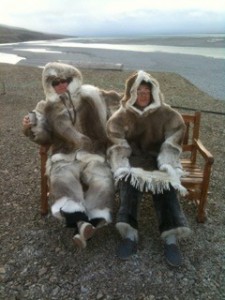
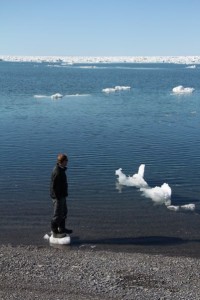
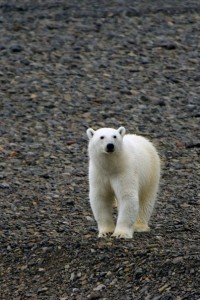
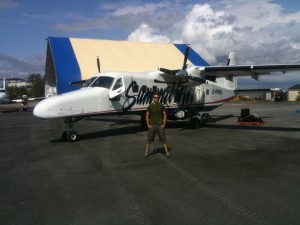
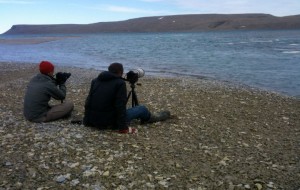
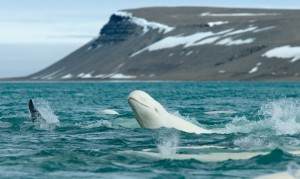 Skip to sharing
Skip to sharing
